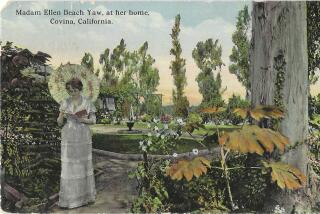RECONSTRUCTING THE TIMES : BILLIE HOLIDAY MAKE-BELIEVE : Merkerson Captures the Essence of the Music; Robertson Authentically Reconstructs the Era
To most who see “Lady Day at Emerson’s Bar & Grill,” Billie Holiday (whom nobody under 40 is likely to have heard alive and flourishing) is less reality than cult figure, more symbol of black creativity and racial oppression than a well-remembered living legend.
Nevertheless, as those who knew her will confirm, Lanie Robertson’s script has reconstructed the era with remarkable authenticity, and S. Epatha Merkerson captures, both in the lengthy narration and her songs, more of the essence than one would have had a right to expect from someone of a later generation. The trio of Danny Holgate, who wrote the arrangements, also has the genuine ring of the 1950s.
Merkerson, like Ranee Lee (who played this role so successfully in Montreal last summer), reflects the spirit rather than the letter of Holiday’s style and sound. Only in “Strange Fruit” does she falter, for that sound demands a sense of its time and context, which almost nobody else has successfully addressed.
Robertson took a few liberties with the facts. The anecdotes dealing with Holiday’s months in the Artie Shaw Orchestra are pure fiction: She was not prevented from sitting on the bandstand, as this reporter can recall from in-person viewing. The long-preserved story concerning the death of Bessie Smith (that she was refused admittance by a white hospital) is revived, though Smith’s biographer calls it a myth. Still, every word uttered by Merkerson has the ring of truth, the feeling of what could happen in America in those days of lynching and pandemic segregation. Robertson’s drama puts across its message with a chilling honesty, and in Merkerson he found the ideal messenger.
More to Read
Only good movies
Get the Indie Focus newsletter, Mark Olsen's weekly guide to the world of cinema.
You may occasionally receive promotional content from the Los Angeles Times.










